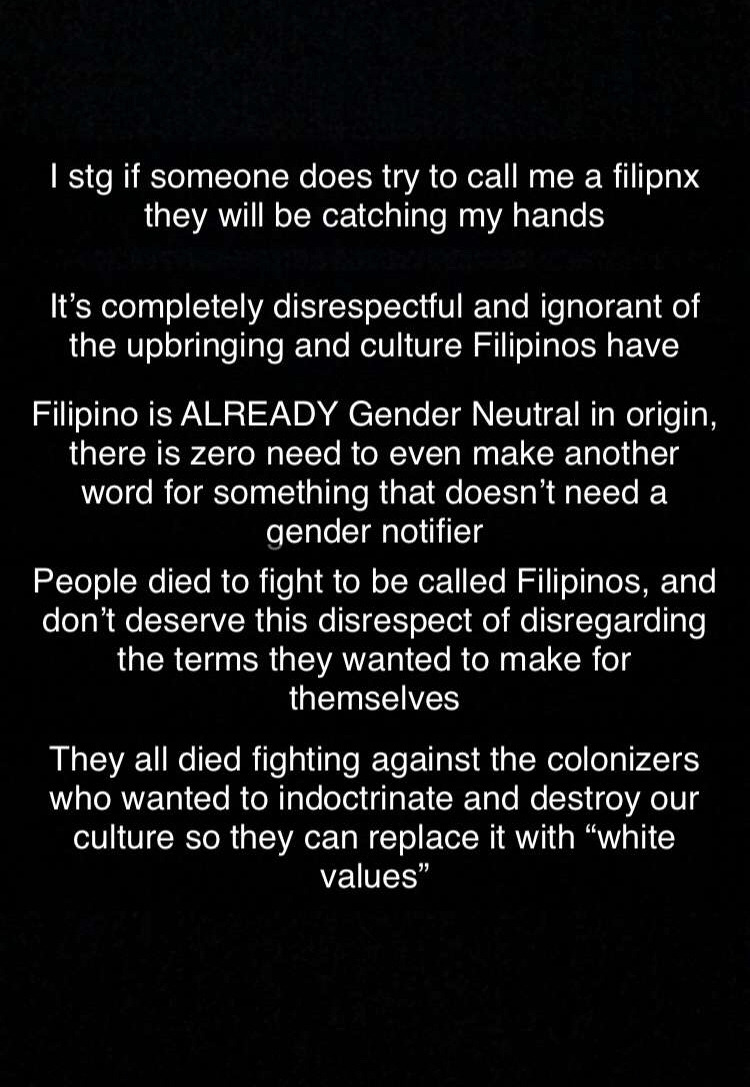scrabbleknight:aeternalegacy:surprisebitch:surprisebitch:I did not write this, but I second it !!!!N
scrabbleknight:aeternalegacy:surprisebitch:surprisebitch:I did not write this, but I second it !!!!Non-Filipinos can reblog this btw Yep.If you’ve ever spoken to a Tagalog speaker, they may have trouble with pronouns in English. My parents came over as professionals that are fluent in English. They speak English 70% of the time. They’ve lived in the US for nearly 50 years and they still fuck up pronouns.This is because there is no “he” or “she”. There’s just siya which encompasses both (all) genders. Malay languages, such as those used in Malaysia and Indonesia, are also ungendered. There are many similarities between Malay and Tagalog as well, including shared nouns. For Malays though, we use dia which can mean either “he”, “she” or “they (singular)”. Basically, any kind of indirect singular subject. Diorang means “they (plural)” while kau/engkau means “you”.I know Malay doesn’t have a big cultural influence in the US but I just wanted to add anyway since there are Malays there too. Most international Malays can be found in Europe, especially the UK. -- source link
